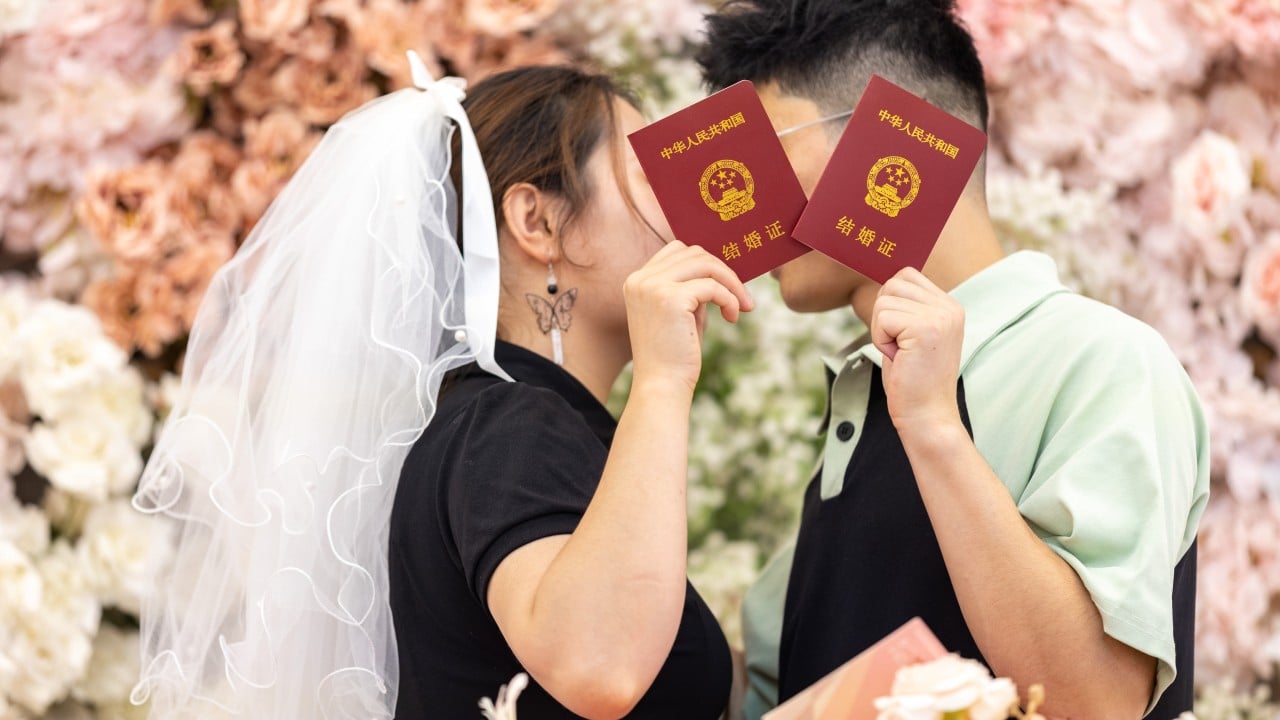Authorities in the central Chinese province of Hubei have announced they would extend the duration of the region’s paid marriage leave to 15 days, the latest move from a local government to provide incentives for marriage and slow the country’s decline in birth rates.
Advertisement
The extension, which includes the national minimum of three days, is meant to foster a more “family-friendly society”, according to a document issued by the provincial government on Monday.
“To fully implement national regulations regarding marriage leave…the province will establish a reasonable cost-sharing mechanism,” the document said.
China experienced its first population decline in 60 years in 2022, with the National Bureau of Statistics reporting 9.56 million births versus 10.41 million deaths. The fall continued in 2023, but the drop was shallower in 2024 as births saw a slight recovery – partially attributed to parents’ preferences for children born in the auspicious Year of the Dragon.
Statistics for marriage show a sharper descent. In 2024, a severe 20.5 per cent drop was observed in nationwide marriage registrations, with just 6.1 million couples becoming wed.
Advertisement
This represents the steepest annual decline since 1978 – the year records began to be kept – and less than half the peak recorded in 2013, according to data from China’s Ministry of Civil Affairs released in February. Meanwhile, divorce registrations increased slightly to 2.6 million, up 1.1 per cent from 2023.
Despite government campaigns to limit extravagant weddings and exorbitant bride prices to lower the cost of marriage, it is still viewed as a prohibitive expense by many young couples.

